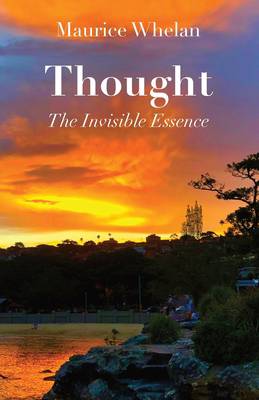
- Retrait gratuit dans votre magasin Club
- 7.000.000 titres dans notre catalogue
- Payer en toute sécurité
- Toujours un magasin près de chez vous
- Retrait gratuit dans votre magasin Club
- 7.000.0000 titres dans notre catalogue
- Payer en toute sécurité
- Toujours un magasin près de chez vous
Description
'It struck me at some point when reading Maurice Whelan's Thought: The Invisible Essence that thinking, a bit like reading, writing and dreaming, is not framed often enough as conversation. As readers, when we're lucky, we enter into dialogue with the writer, and when fruitful, the conversation continues long after the book is finished. This poetic and meditative book offers an unhurried, deep analytic conversation with Maurice, as he wanders through the question of what it is to have a mind and to use it.' - Charlie Stansfield
Maurice Whelan, psychoanalyst, poet, novelist, non-fiction writer, travels down many paths and asks the reader to travel with him. The places he offers are real and imagined: William Hazlitt's English countryside, John McGahern's Ireland's lanes and hedgerows; Shakespeare's island in The Tempest, Richard Dyer's poetic kingdom of the mind. And more. All places become spaces to the extent we are willing to explore them. Some journeys are not easy. Whelan uses his knowledge of Irish history, of the internal workings of the Catholic church and his lifetime experiences as a social worker and psychoanalyst, to interrogate the scandal of clerical child sexual abuse. He highlights an abject failure to think about the damage done to children, to their minds, hearts and souls. While content to wander, Whelan has the real business of living in his sights. He sees an appreciation of the essence of thought as necessary to maintain and improve the living of any life.
Spécifications
Parties prenantes
- Auteur(s) :
- Editeur:
Contenu
- Nombre de pages :
- 256
- Langue:
- Anglais
Caractéristiques
- EAN:
- 9781761093470
- Date de parution :
- 25-07-22
- Format:
- Livre broché
- Format numérique:
- Trade paperback (VS)
- Dimensions :
- 140 mm x 216 mm
- Poids :
- 326 g

Les avis
Nous publions uniquement les avis qui respectent les conditions requises. Consultez nos conditions pour les avis.






